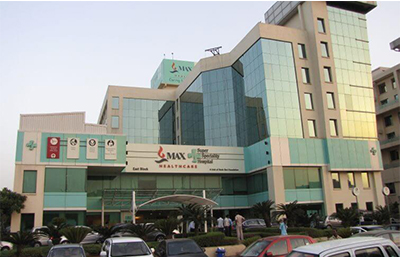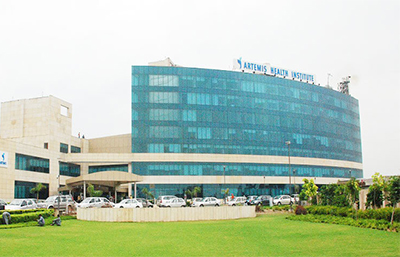Creaking knees and joint pain is commonly perceived as the signs of ageing. People assume that there is no solution to these problems, so they don’t visit the doctor and talk about the problem unless it gets worse. Luckily, advancements in science and technology have offered a lot of options for joint replacement.
Who needs a knee Replacement?
If your answer is yes to most or all the questions, you probably are a candidate for knee replacement surgery
- Does severe knee pain limit your activities? (walking, climbing stairs, getting in and out of chair)
- Is your knee often swollen, not responding to medications or rest?
- Are your knees deformed?
- Are your knees stiff, which makes it difficult to bend or straighten?
- You don't get satisfactory relief from pain killers and other conservative methods?
Types of Knee Replacement
- Partial Knee Replacement: Unicondylar replacement or Partial replacement can be considered if only the medial or inner compartment of knee is severely damaged and the other compartments, Patella and Ligaments are well or fairly preserved. Recovery after Partial Knee Replacement is expected to be faster than after Total Knee Replacement. During Partial Knee Replacement Procedure, A total Knee Replacement implant is kept on standby incase the lateral and the patellar compartment or Anterior Cruciate Ligament are found damaged.
- Total Knee Replacement: Total knee replacement is a surgery to remove and replace the whole damaged knee joint with an artificial joint. Artificial joints are made of either metal alloys, high-grade plastics, or polymers. Based on the condition of the patient, the surgeon may replace a single knee or both the knees at once. If the surgery involves the replacement of both the damaged knee joints at the same time, it is referred to as bilateral total knee replacement.
Realistic expectations
- Ultimate goal of knee replacement surgery is pain relief and improved knee function.
- Knee replacement surgery will not treat pain arising from other joints or back.
- Restrictions like avoiding running, high impact aerobics and sports like tennis are to be practiced for the rest of life.
- Extreme bending, squatting and sitting cross-leg should be avoided to prevent dislocation and wear or early loosening of implants.
- Knee replacements last many years, but may need revision surgery when they wear out or loosen.
- Some Patients experience numbness or paresthesia on outer aspect of knee after surgery.
- Discomfort and swelling may take some months to disappear.
Getting ready for the surgery
- List all the medications you are currently taking. You may be advised to stop certain medicines like clopidogrel and ecosprin a week before surgery. Talk to anesthetist regarding this issue at the time of your pre anesthesia checkup.
- List any allergies or adverse reactions to drugs or anesthesia in past.
- Bring your recent x-rays and all the medications you are taking at the time of hospital admission
As with all operative endeavors, there is a list of potential pitfalls, problems or complications. To name a few there is risk of Infection, clots forming in the veins of the leg travelling off to the heart and lungs, compartment syndrome and loosening. Postoperative stiffness and swelling of the joint can also be problematic. All the precautions are taken to minimize the risk of complications.
Knee Replacement cost in India
The cost of knee Replacement in India is significantly lower than in other developed countries. On average, total knee replacement surgery in India costs around $8,000 to $12,000, while partial knee replacement surgery costs around $6,000 to $8,000. These prices include the cost of the surgery, hospital stay, and post-operative care.
Recovery after Knee Replacement
Recovery after knee Replacement surgery usually takes several months. The first few days after the surgery, the patient will need to stay in the hospital for monitoring and rehabilitation. Physical therapy will begin soon after surgery to help the patient regain strength and mobility in the knee. Most patients are able to return to their normal activities, such as walking and climbing stairs, within a few weeks of the surgery. However, it can take several months for the patient to fully recover and return to more strenuous activities, such as sports.
Knee Replacement in India is a safe and effective option for people with severe knee arthritis or knee injury. The availability of highly skilled surgeons, state-of-the-art facilities, and affordable prices make India a popular destination for knee Replacement surgery. If you are considering knee Replacement, it is important to consult with a qualified surgeon to determine if the surgery is right for you and to discuss the risks and benefits of the procedure. With the proper care and rehabilitation, most patients are able to return to their normal activities and enjoy an improved quality of life after knee Replacement surgery.









